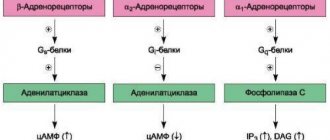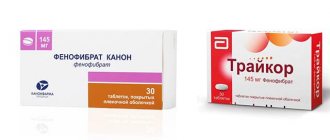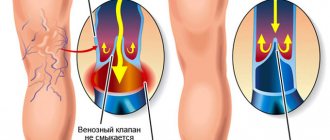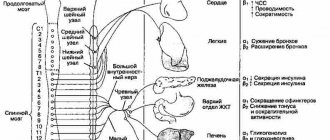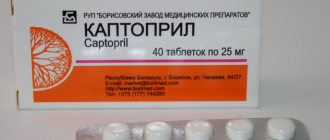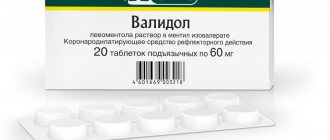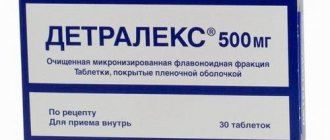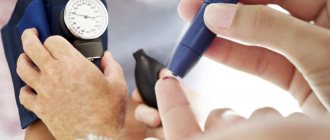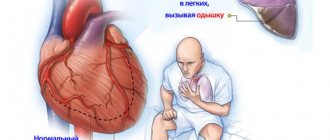Violation of the rheological properties of blood and its fluidity is a significant risk factor for the development of dangerous processes, primarily thrombosis.
Such clots provoke blockage of blood vessels, which immediately leads to emergency conditions, death, or requires immediate surgical intervention due to tissue death - gangrene.
Thrombosis therapy involves the use of a special group of medications like Urokinase. They have a lot of side effects, so they are used with great caution and in the most extreme cases. As a preventive measure, other means are prescribed.
Antiplatelet agents are a special type of drugs used to prevent the clumping of formed blood cells, platelets, and others as part of prevention.
Prescribed for the treatment of most cardiovascular pathologies in the acute phase and during the rehabilitation period. They should also be used with great caution, because they thin the blood and can cause dangerous complications.
Accordingly, neither thrombolytics nor antiplatelet agents can be used without permission. The issue is always resolved strictly at the discretion of the doctor.
Mechanism of action
Antiplatelet drugs (another name for this pharmacological group) have a complex way of influencing the body.
First of all, the effect is on blood clotting. The basis is the regulation of the biochemical characteristics of hemostasis.
Without going into the complex features of the process, we can say that ultimately a group of effects is achieved:
- Decreased platelet aggregation. Simply put, their sticking together is a result of an inadequate condition. The main clinical effect gives the name to the drugs of this type.
- Blood thinning. Achieved indirectly. The rheological properties of the fabric are restored. Due to this, a change in viscosity occurs, normalizing the pressure on the walls of blood vessels. Additionally, degeneration of the endothelium of arteries and veins is prevented.
However, long-term use of antiplatelet agents is not possible. Because there is a high risk of developing dangerous bleeding, which can lead to death.
Moreover, it is unacceptable to use drugs from this pharmaceutical group while taking thrombolytics (Uro-, streptokinase and other medications).
There is another type of drug, which is very similar in properties and clinical effect to the one described. These are the so-called anticoagulants. Often even doctors use both terms as synonyms, however, these are different types of drugs.
The second among those mentioned have an active effect, work faster, the effect is short-term, but much more pronounced.
Rapid blood thinning is observed, which makes anticoagulant drugs ideal for preventing the formation of blood clots, especially in emergency conditions. It makes sense, however, to approach the purpose and use with great caution.
The danger of such medications is also many times higher, which can put an end to health or even life if used incorrectly.
Attention:
The parallel administration of anticoagulants and thrombolytics is strictly prohibited. Because the risk of massive internal bleeding increases several times.
Thus, the basis of disaggregants is the ability to influence biochemical processes in the body and the composition of the blood, preventing the adhesion of its formed cells and the formation of blood clots.
Features of the action of anticoagulants
Anticoagulants are medications prescribed to treat and prevent venous thrombosis and prevent complications of atrial fibrillation.
The most popular anticoagulant is warfarin, which is a synthetic derivative of the plant material coumarin. The use of warfarin for anticoagulation began in 1954, and since then the drug has played an important role in reducing mortality in patients prone to thrombosis. Warfarin suppresses vitamin K by reducing the hepatic synthesis of vitamin K-dependent clotting factors. Warfarin drugs are highly protein bound, which means that many other medications and supplements can alter the physiologically active dose.
The dose is selected individually for each patient, after carefully studying the blood test. It is strongly not recommended to change the selected dosage of the drug on your own. Too much of a dose will mean that blood clots do not form quickly enough, increasing the risk of bleeding and non-healing scrapes and bruises. A dosage that is too low means that blood clots can still develop and spread throughout the body. Warfarin is usually taken once a day, at the same time every day (usually before bed). Overdose may cause uncontrolled bleeding. In this case, vitamin K and fresh frozen plasma are administered.
Warfarin is the most popular anticoagulant
Other drugs with anticoagulant properties:
- dabigatran (Pradacas): inhibits thrombin (factor IIa), which prevents the conversion of fibrinogen to fibrin;
- rivaroxaban (Xarelto): inhibits factor Xa, preventing the conversion of prothrombin to thrombin;
- Apixaban (Elivix): also inhibits factor Xa and has weak anticoagulant properties.
Compared to warfarin, these relatively new drugs have many advantages:
- prevent thromboembolism;
- lower risk of bleeding;
- fewer interactions with other medications;
- shorter half-life, which means it will take a minimum of time to reach peak levels of active substances in plasma.
Acetylsalicylic acid
And its derivatives. The most common group of pharmaceuticals in medical practice with high proven effectiveness.
When compared to the other types described below, these drugs are about average in safety and effectiveness.
The classic and long-outdated Aspirin is currently still actively used, despite the high risks.
It does a good job of urgently restoring blood flow, but is absolutely not suitable for long-term use. As part of modern practice, its safer analogues are prescribed.
Aspirin-Cardio
Perhaps the most popular modification of the drug based on acetylsalicylic acid. It has a different dosage than its predecessor and is positioned as a means for the systemic, complex treatment of cardiovascular diseases.
Whether this is true or not, doctors have not come to a consensus. The main feature of Aspirin-Cardio is the possibility of long-term use with fewer risks to health and life.
The antiplatelet effect is achieved after several days of use, so the product can be considered relatively safe.
At the same time, in addition to restoring the rheological properties of liquid connective tissue, Aspirin-Cardio relieves inflammation, pain, and normalizes body temperature.
Such non-selectivity can play a cruel joke; you need to be careful when using it and carefully monitor your own feelings.
The concentration of acetylsalicylic acid in this drug is three times higher than in the classic variation of Aspirin, which also imposes a lot of restrictions. All issues are resolved at the discretion of the treating specialist.
Thrombo-ASS
In fact, there is no big difference between the old analogues based on acetylsalicylic acid and this name. In both cases, the concentration of the active substance is identical.
The difference lies in the form of release. The coating of the drug Thrombo-ACC prevents the rapid absorption of acid in the digestive tract and reduces the destructive effect of this phenomenon.
Therefore, the medication is considered not so aggressive towards the organs of the gastrointestinal tract. The advantage is quite controversial, taking into account the mass of analogues of other groups, as well as the higher cost of Trombo-ACC.
In any case, the issue of choice and appointment is decided by doctors. Unauthorized use is not possible if there is a desire to preserve health.
Aspicor
It has a minimal dosage of acetylsalicylic acid, in addition, it is considered safer than aspirin-containing analogues, not as aggressive and “clean”, therefore it can be used indefinitely as a maintenance treatment. But not in the “role” of the only medicine, but in the system.
The cost of Aspicor also makes the drug simple and affordable, because the price is not much different from that of a regular obsolete analogue.
In all cases, medications based on acetylsalicylic acid have a significant disadvantage. They are not selective.
The antiplatelet effect is complemented by an anti-inflammatory and antipyretic effect; it is logical that the drug affects many functions and organs, including the digestive tract and heart.
If used excessively, it can cause bleeding and increases the fragility and permeability of blood vessels.
List of antiplatelet agents and their classification
All antiplatelet agents can be divided into groups:
- Acetylsalicylic acid and its derivatives (Trombo-AS, Aspirin cardio, Acecardol, Cardiomagnyl, Aspicor, CardiASK) and others.
- ADP receptor blockers (Clopidogrel, Ticlopidine).
- Phosphodiestrase inhibitors (Triflusal, Dipyridamole).
- Glycoprotein receptor blockers (Lamifiban, Eptifibatide, Tirofiban, Abciximab).
- Inhibitors of arachidonic acid metabolism (Indobufen, Picotamide).
- Medicines based on the Ginkgo Biloba plant (Bilobil, Ginos, Ginkyo).
- Plants with antiplatelet properties (horse chestnut, blueberries, licorice, green tea, ginger, soy, cranberry, garlic, ginseng, red clover, pomegranate, St. John's wort, onion and others).
- This category also includes vitamin E, which exhibits the same properties.
Now - in more detail about some of the most common drugs.
Aspirin
First on the list is acetylsalicylic acid, or aspirin, the most famous drug that is widely used not only as an antiplatelet agent, but also as an anti-inflammatory and antipyretic. The mechanism of action of aspirin is to suppress the biosynthesis of thromboxane A2, which is found in platelets. Thus, the adhesion process is disrupted and the blood clots more slowly. In large doses, acetylsalicylic acid also affects other coagulation factors, which only enhances the anticoagulant effect.
Aspirin is the most popular antiplatelet drug
Aspirin has different indications, but most often it is prescribed to prevent blood clots. The drug is well absorbed in the stomach and is excreted by the kidneys within 20 hours. The effect occurs within half an hour. Should be taken only after meals, otherwise there is a risk of developing stomach ulcers. Available in tablet form.
You should not take aspirin on your own. While taking it, it is necessary to monitor blood clotting parameters and adjust the dosage if necessary. It is important to be aware of the risk of bleeding when taking aspirin and anticoagulants at the same time. Acetylsalicylic acid, together with other anti-inflammatory non-steroidal drugs, has a negative effect on the gastric mucosa.
Bronchial asthma should be added to the contraindications described above.
Aspirin causes many side effects, including:
- stomach pain;
- nausea;
- gastrointestinal ulcer;
- headache;
- allergies;
- disorders of the kidneys and liver.
Clopidogrel
This drug belongs to the ADP receptor blockers. It blocks the binding of adenosine triphosphate to receptors, which inhibits the process of platelet aggregation. Compared to other ADP receptor blockers, it causes fewer allergies and side effects from the blood and gastrointestinal tract.
After oral administration, the drug is rapidly absorbed into the gastrointestinal tract; after an hour, the maximum concentration in the blood is observed. Excreted in feces and urine. The maximum effect is achieved after about a week and can last up to 10 days. Available in tablets.
It prevents blood clots in cardiovascular diseases more effectively than aspirin.
The drug should not be prescribed together with direct and indirect anticoagulants. Contraindications are basically the same as for other drugs belonging to this group.
Side effects include allergies, jaundice, gastrointestinal disturbances, and dizziness.
Integrilin (Eptifibatide)
Refers to antagonists of IIb/IIIa glycoprotein receptors. Prevents the binding of fibrinogen and plasma coagulation factors to platelet receptors, thereby inhibiting platelet adhesion. It has no effect on APTT and prothrombin time. Its actions are reversible, and after a few hours the platelets return to their functions.
Together with Integrilin, heparin and acetylsalicylic acid are prescribed for the complex treatment of acute coronary syndrome. Available in solution for injection and used only for inpatient treatment.
The drug is contraindicated in pregnancy, lactation, internal bleeding, hemorrhagic diathesis, severe hypertension, thrombocytopenia, aneurysm, severe renal and hepatic pathologies.
Side effects include bradycardia, decreased blood pressure, allergic reactions, and a decrease in the number of platelets in the blood.
Chime
Refers to platelet phosphodiesterase inhibitors with the main active ingredient dipyridamole.
Its antiplatelet effect is based on suppressing the activity of platelet enzymes, releasing prostacyclin from the endothelium and blocking the formation of thromboxane A2.
Its action is similar to aspirin; in addition, it dilates the coronary vessels during an attack of angina.
Absorbed into the gastrointestinal tract quickly, by 40-60%, and after about an hour reaches maximum concentration in the blood. Excreted in bile.
The release form of the medicine is tablets and dragees.
The most common side effects are:
- dizziness;
- headache,
- nausea,
- redness of the facial skin;
- muscle pain;
- decrease in blood pressure,
- skin allergies;
- increased symptoms of ischemia.
You should not take Curantil for acute heart attack and unstable angina.
Ticlid (ticlopidine)
This drug is superior in its antiplatelet effect to acetylsalicylic acid, but the desired effect occurs much later. It blocks platelet receptors IIb/IIIa, reduces blood viscosity, increases the elasticity of red cells and the duration of bleeding.
It is prescribed for severe atherosclerosis to prevent ischemia, after myocardial infarction, after coronary bypass surgery, as a prophylactic agent for platelet pathologies, to prevent the development of retinopathy due to diabetes mellitus.
Release form: tablets.
You should not take Tiklid if you are prone to bleeding (with some blood diseases, hemorrhages, stomach ulcers), or are intolerant to ticlopidine. The medicine may cause changes in blood composition, bleeding, abdominal pain, allergic reactions, and jaundice.
Combination drugs
These medications contain several antiplatelet agents that enhance each other’s actions. The most commonly prescribed include:
- Aspigrel – it contains acetylsalicylic acid and clopidogrel.
- Agrenox – contains dipyridamole and aspirin.
- Cardiomagnyl - made on the basis of acetylsalicylic acid and magnesium.
- CombiASK is an analogue of Cardiomagnyl.
- Magnicor is close in composition to Cardiomagnyl.
ADP blockers
Agents that reduce the effect produced by a special substance - adenosine phosphate. This compound provokes platelet clumping through a complex bond with fibrinogen, therefore drugs of this type affect the fundamental processes of thrombus formation.
Moreover, unlike the previous ones, they are more selective and are used with less caution, although they can cause harm if used incorrectly.
Ticlopidine
A relatively old, well-studied name. The product was first synthesized in the late 70s of the last century. It is still actively used, represented by a list of trade names: Tiklid, Tiklo, Aklotin, Tagren.
The drug is used both as part of urgent care for emergency conditions, and for the treatment of chronic diseases associated with a violation of the rheological properties of the blood.
Basically, the medication is prescribed for the purpose of treating long-term conditions, preventing dangerous complications, and thrombosis. The question is open and remains at the discretion of the doctor.
Clopidogrel
There is no consensus in the medical community about what is more effective, this name or Ticlopidine. The authors hold different points of view.
However, practitioners agree that before and after surgical interventions, especially for cardiac diseases, preference should still be given to Clopidogrel, as it is the optimal combination of effectiveness and safety.
It is not prohibited to use the pharmaceutical product either in emergency conditions or for a long time, depending on the indications.
In any case, both names have significant potential and can be dangerous if used incorrectly.
Medicines to reduce the effect of ADP are also taken in isolation, as the main ones in therapy. Especially in mild cases, but more often prescribed in a system with others. Depends on the situation.
Natural antiplatelet agents and anticoagulants
Some foods, dietary supplements and herbs have blood thinning properties. Naturally, they cannot be supplemented with medications already taken. But in consultation with your doctor, you can use garlic, ginger, ginkgo biloba, fish oil, and vitamin E.
Garlic
Garlic is the most popular natural remedy for the prevention and treatment of atherosclerosis and cardiovascular diseases. Garlic contains allicin, which prevents platelets from sticking together and forming blood clots. In addition to its antiplatelet effects, garlic also lowers cholesterol and blood pressure, which are also important for cardiovascular health.
Ginger
Ginger has the same beneficial effects as antiplatelet medications. You need to consume at least 1 teaspoon of ginger every day to notice the effect. Ginger can reduce the stickiness of platelets and also lower blood sugar levels.
Ginkgo biloba
Consuming ginkgo biloba can help thin the blood and prevent platelets from becoming too sticky. Ginkgo biloba inhibits platelet activating factor (a special chemical that causes blood to clot and form clots). Back in 1990, it was officially confirmed that ginkgo biloba effectively reduces excessive platelet adhesion in the blood.
Natural supplements will also help prevent the development of thrombosis
Turmeric
Turmeric can act as an antiplatelet drug and reduce the tendency to form blood clots. Some studies have shown that turmeric may be effective in preventing atherosclerosis. An official medical study conducted back in 1985 confirmed that the active component of turmeric (curcumin) has a pronounced antiplatelet effect. Curcumin also stops platelet aggregation and also thins the blood.
But it is better to avoid foods and dietary supplements that contain large quantities of vitamin K (Brussels sprouts, broccoli, asparagus and other green vegetables). They can dramatically reduce the effectiveness of antiplatelet and anticoagulant therapy.
Phosphodiesterase inhibitors
They influence another mechanism of blood clot formation. They have fewer contraindications and are considered safer when compared with the previous two pharmaceutical groups.
It makes sense to use them after emergencies, surgical interventions during the rehabilitation period, or as medications for the prevention of heart attack, stroke, and acute hemodynamic disorders associated with changes in blood properties.
Common names include Dipyridamole, Triflusal. Both are relatively old. They have several trade names that differ from the main ones, for example Curantil.
They often provoke allergic reactions, therefore they require careful prescription and monitoring of the patient’s condition.
GPR blockers
Agents that reduce the sensitivity of platelet glycoprotein receptors act mildly and are relatively rarely tolerated.
The basis of the influence of medications of this type is the ability, relatively speaking, to instruct platelets not to interact with factors that provoke aggregation, that is, their sticking together.
The rheological properties of blood change slightly; the effect of HPR blockers is high, but short-lived. Therefore, it makes sense to use the remedy either within the framework of acute conditions or to select a clear regimen and dosage.
Among the names are Eptifibatide (Intergrilin), Tirofiban, and others.
Medicines of this type are most widely used when used in patients with acute conditions in a hospital. For example, with coronary insufficiency.
It also makes sense to use them in a system with classical medications based on Aspirin.
Arachidonic acid production inhibitors
Reduce the rate of synthesis of the named substance. In general, they are similar to the previous group of medications with an antithrombotic effect. The difference is selectivity.
This category of drugs affects many factors of platelet “clumping”, and therefore poses a much greater danger to the health and life of the patient than others.
When using it, you need to constantly monitor the person’s condition over time. To quickly adjust the dose or discontinue the drug.
Among the names: Indobufen, Ibustrin and others.
What is the difference between anticoagulants and antiplatelet agents?
Having studied the properties of the two types of drugs, we can come to the conclusion that they are both designed to do the same job (thin the blood), but using different methods. The difference between the mechanisms of action is that anticoagulants usually act on proteins in the blood to prevent the conversion of prothrombin to thrombin (the key element that forms clots). But antiplatelet agents directly affect platelets (by binding and blocking receptors on their surface).
When blood clots, special mediators released by damaged tissues are activated, and platelets respond to these signals by sending special chemicals that provoke blood clotting. Antiplatelet drugs block these signals.
Herbal remedies
Their pharmacological effectiveness has not been proven. These are medicines based on Ginkgo Biloba.
Such “medicines” do not make much sense in purchasing and using them for their intended purpose.
This also includes conventionally “folk” recipes based on ginger, St. John’s wort and others. This is not a treatment, just an amateur activity.
Herbs can be used as an aid only if the doctor agrees to it. Therapy does not tolerate creativity; it requires common sense, accurate calculations and analytical work.
Other drugs
These include those used for long-term treatment of abnormalities: Pentoxifylline (the most popular in clinical practice), Reopoliglucin (identical to the previous one, but safer and used in a wide range of cases).
Another type is complex medicines, which contain several components.
For example, Cardiomagnyl (Aspirin and magnesium, respectively), Aspigrel, Coplavix, Agrenox and others. The doctor decides whether it is worth prescribing such “explosive mixtures”.
In most cases, precise dosing is required, so it is better to give preference to two separate items.
It is safer, more effective and provides the doctor with the tools to fully control the process.
Moreover, the price of such “hybrids” is quite high, which completely eliminates any objections on this score from manufacturers. The issue is decided at the discretion of the treating cardiologist.
Precautions when taking blood thinners
If anticoagulants or antiplatelet agents are prescribed (sometimes they can be prescribed in combination), then it is necessary to periodically undergo a blood clotting test. The results of this simple test will help your doctor determine the exact dose of medications to take each day. Patients taking anticoagulants and antiplatelet drugs should tell dentists, pharmacists, and other health care providers about the dosage and timing of medications.
It is necessary to inform doctors if you are taking blood thinning medications.
Because of the risk of severe bleeding, anyone taking blood thinners should protect themselves from injury. You should avoid playing sports and other potentially dangerous activities (hiking, motorcycle riding, active games). Any falls, strong impacts or other injuries should be reported to your doctor. Even minor trauma can cause internal bleeding, which may occur without any obvious symptoms. Particular attention should be paid to shaving and brushing your teeth with special floss. Even such simple everyday procedures can lead to prolonged bleeding.
Indications
{banner_banstat9}
It is impossible to say exactly when you need to take drugs of this type. The list of antiplatelet agents is wide, and the active ingredients also differ. It's worth taking a look at the instructions.
Theoretical speculations make no sense at all, because the question in any case falls on the shoulders of the doctor.
If you present the list on average, you will get the following picture:
- Transient ischemic attacks. Temporary episodes of circulatory disorders. Localization does not play a big role.
- Emergency conditions suffered in the recent past. Heart attack, stroke. In the first case, not everything is so obvious; many medications are not allowed in this situation. In the second one too.
We are talking only about the ischemic type of disorder. Not hemorrhagic, when there was hemorrhage.
- Stable high blood pressure. Hypertension.
- Cardiac surgery performed.
- Obliterating trophic disorders in the lower extremities. For example, atherosclerosis.
- Stroke prevention (read more about primary and secondary measures in this article).
- Coronary heart disease, except in some cases where the drug can cause harm.
The list is very approximate.
Why do you need to thin your blood?
Blood clotting is the result of a complex sequence of events known as hemostasis. It is thanks to this function that bleeding stops and blood vessels are quickly restored. This happens because tiny fragments of blood cells (platelets) stick together and “seal” the wound. The coagulation process involves as many as 12 coagulation factors that convert fibrinogen into a network of fibrin filaments. In a healthy person, hemostasis is activated only in the presence of a wound, but sometimes uncontrolled blood clotting occurs as a result of diseases or improper treatment.
This is what a blood clot looks like
Excessive clotting leads to the formation of blood clots, which can completely block blood vessels and stop blood flow. This condition is known as thrombosis. If the disease is ignored, parts of the blood clot can break off and travel through the blood vessels, which can lead to the following serious conditions:
- transient ischemic attack (mini-stroke);
- heart attack;
- gangrene of peripheral arteries;
- infarction of the kidneys, spleen, intestines.
Thinning the blood with the right drugs will help prevent the occurrence of blood clots or destroy existing ones.
Contraindications
{banner_banstat10}
The same applies to these grounds. The list of antiplatelet drugs is wide; it is impossible to give a complete list without taking into account the specifics of the pharmaceutical product. That's why the abstract is taken.
If we talk about something approximate again:
- Breast-feeding. The active ingredients are transmitted through milk, so use is strictly prohibited.
- Pregnancy in any phase. Will affect the condition of the mother or fetus.
- Age up to 18 years. Contraindication for the predominant number of antiplatelet agents. Use not allowed
- Hemorrhagic stroke, in which bleeding develops into the structures of the brain.
- Heart failure, at any stage. Absolute contraindication.
- Hepatic or renal dysfunction in the active phase, until the condition is compensated. Then - with great care and prudence.
- Ulcer of the stomach, duodenum, mucous membrane of other parts of the digestive tract. Because it is possible to develop bleeding, even fatal.
Even in the absence of clear reasons for refusing use, you need to carefully think about the advisability of using the medication.
Side effects
There are relatively many of them. You should start from the name and group of the product. But the question is more transparent.
Particularly common violations among the possible ones:
- Prolonged bleeding that does not stop even after minimal damage: cuts, abrasions. This is almost impossible to avoid.
- Falling blood pressure levels.
- Dizziness, disorientation in space.
- Nausea, rarely progresses to vomiting.
- Allergic reactions. Perhaps the main side effect of the use of drugs to restore the rheological properties of blood.
The intensity varies. It is minimal when a rash forms on the skin before Quincke's edema or even anaphylactic shock. Fortunately, the last option occurs as an exception.
If negative phenomena develop, it makes sense to reconsider the course and regimen of treatment or completely abandon drugs of this type, which is also more of an unfortunate rare case than the rule.
Patients are advised to closely monitor their well-being. If adverse events develop, consult your doctor again.
What are antiplatelet agents and how do they work?
Antiplatelet drugs suppress the production of thromboxane and are prescribed to prevent stroke and heart attack. Drugs of this type inhibit platelet aggregation and blood clot formation.
Aspirin is one of the most inexpensive and common antiplatelet drugs. Many patients recovering from a heart attack are prescribed aspirin to stop further blood clots forming in the coronary arteries. In consultation with your doctor, you can take low doses of the drug on a daily basis to prevent thrombosis and heart disease.
Aspirin is the most common antiplatelet drug
Adenosine diphosphate (ADP) receptor inhibitors are prescribed to patients who have had a stroke or those who have had a heart valve replacement. Glycoprotein inhibitors are injected directly into the bloodstream to prevent blood clots from forming.
Antiplatelet drugs have the following trade names:
- dipyridamole,
- clopidogrel,
- nugrel,
- ticagrelor,
- ticlopidine.
